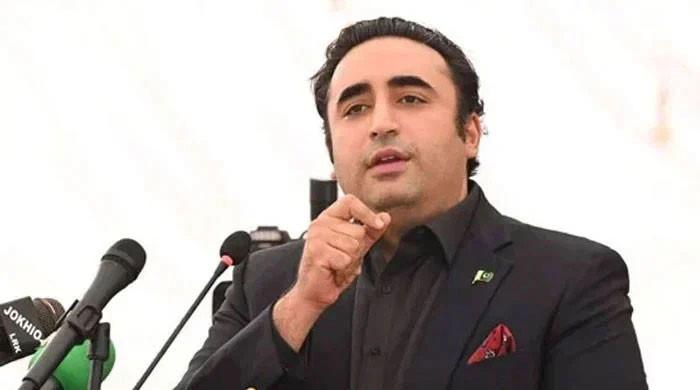Bilawal Criticizes India’s Actions on Indus Water Treaty
ISLAMABAD: In response to India’s declaration to suspend the Indus Water Treaty following the Pahalgam attack, Pakistan Peoples Party (PPP) Chairman Bilawal Bhutto-Zardari stated that New Delhi’s recent independent actions would result in its isolation both within its borders and internationally.
“Such measures were not implemented even during wartime. India’s current actions are exceptional, demonstrating a focus on exploiting terrorism for political advantage rather than combating it,” the former foreign minister commented during a broadcast on a local news program on Friday.
This statement comes after a deadly shooting in Indian Illegally Occupied Jammu and Kashmir (IIOJK), where 26 tourists were killed in the Pahalgam area, including a Nepali citizen.
Following the assault, India implemented separate measures against Pakistan, including halting a water-sharing agreement, declaring the main land border crossing with Pakistan closed, reducing diplomatic relations, and ending visa issuances.
Pakistan responded by ordering the removal of Indian diplomats and military advisors, invalidating visas for Indian citizens—excluding Sikh pilgrims—and closing the main border crossing from its side.
The United Nations (UN) has called on Pakistan and India to exercise “maximum restraint,” asserting that all issues between the two countries should be addressed peacefully through constructive mutual dialogue.
During the program, Bilawal emphasized that India does not have the authority to unilaterally terminate the Indus Waters Treaty, stressing its international recognition and the involvement of other signatories, like the World Bank.
“Using water as a weapon at a time when the entire world faces the threat of climate change is irresponsible and unethical,” Bilawal added.
He further warned that fighting wars over water would trap future generations in a cycle of conflict. “No nation will support efforts to undermine a globally recognized water-sharing agreement,” he stated.
The PPP chairman also pointed out that India has consistently shown a lack of interest in peace, choosing instead to systematically weaken the internationally acknowledged status of IIOJK. “The revocation of Article 370 was not a counter-terrorism measure but a suppression of peaceful protestors and political leaders,” he said.
Bilawal argued that India attempts to obscure the distinction between legitimate resistance and terrorism, avoiding its international legal responsibilities in Kashmir by continuously blaming Pakistan. “They believe they can repeat past successes, but the world is now aware of these strategies,” he stated.
He added that while the world is united in condemning terrorism, no one is prepared to endorse India’s independent move to politicize shared resources or violate international agreements.
Regarding the contentious canals project, Bilawal noted that the federal government has made a responsible decision, with final approval pending from the Council of Common Interests (CCI).
“It has been agreed that no new canal will be constructed without agreement. Unilateral decisions are ineffective in a democracy,” he remarked.
He cautioned that certain individuals are attempting to ignite regional tensions, particularly between Sindh and Punjab, for their gain. “Such negative forces will face political opposition,” he affirmed.



Comments (0)
No comments yet. Be the first to comment!
Leave a Comment